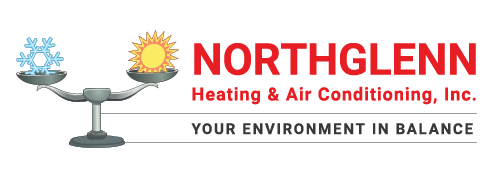
If you’re unsure whether your Northglenn residence has unhealthy indoor air quality (IAQ), it possibly does.
We are indoors a lot. As a matter of fact, we’re in a building up to 90% of the time, according to the U.S. Environmental Protection Agency. And the air inside homes could be 2–5 times more polluted than outdoors, which may create long-term health issues.
Most Common Causes of Poor IAQ
We’ve compiled a list of the most common sources of poor IAQ, the troubles they cause and how you can remedy these indoor air pollutants. If you’re concerned about the air inside your home, we advise consulting with a expert like Northglenn Heating & Air Conditioning about which options are best for your family.
Volatile Organic Compounds
Volatile organic compounds, or VOCs, are fumes released by everyday household products.
They’re found in paint and stains along with:
- Furniture
- Carpet
- Building materials
- Cleaning products
- Cosmetics
- Air fresheners
- Candles
When these chemicals accumulate in your home, they might irritate your eyes, nose and throat. They may also lead to headaches and nausea. Regardless of whether your home is in a rural or industrial location, an EPA study found indoor levels of these pollutants can be 2–5 times worse than the air outdoors.
Always use the manufacturer’s guidelines when applying paint or spraying cleaning products. Cracking a window can help fumes disappear faster.
Air purification systems can also help. This system partners with your heating and cooling equipment to enhance indoor air. When looking for a model, ensure it’s specifically created to eliminate VOCs.
Dust and Pet Dander
Dust and pet dander can irritate health problems like asthma and allergies, especially when it continually gets moved by your residence’s comfort equipment. While you can vacuum more routinely and get an improved air filter, an air filtration system might be a better solution.
This unit hooks to your comfort equipment to deliver powerful filtration. Some models provide hospital-level filtration for removing particles and bioaerosols.
Lingering Odors
Modern houses are securely sealed to enhance energy efficiency. While this is fantastic for your heating and cooling expenses, it’s not so good for your IAQ.
Stale odors can stick around for a greater amount of time since your residence is pulling in a smaller amount of fresh air. As keeping your windows open all the time isn’t a possibility, here are two approaches you can make your indoor air smell better.
An air purification system is placed in your HVAC system to neutralize odors before they recirculate. Search for one with a carbon filter and the power to break down dangerous VOCs. This equipment can also help keep your loved ones healthy by wiping out most bacteria and common allergy triggers like pollen and mold spores.
A ventilation system removes musty indoor air and replaces it with clean outdoor air. There are two kinds of systems (heat recovery and energy recovery), so ask our professionals for more details on which type is right for your home.
Unbalanced Humidity
It’s essential your house’s humidity keeps even. Air that’s too moist can cause mold, while dry air can cause respiratory concerns.
Our technicians suggest 40–50% for ideal comfort. To keep yours even, think over getting a whole-home humidifier or whole-home dehumidifier with your comfort system.
Rather than having to pull a humidifier from room to room, this equipment delivers balanced humidity across your house.
Carbon Monoxide
Carbon monoxide is colorless gas you can’t smell. It’s a byproduct of insufficient combustion in fuel-burning units, like gas heating systems, water heaters or fireplaces.
It produces a severe health risk. In little levels, it can cause flu-like symptoms like headaches and nausea. It can be deadly in heavy levels.
We suggest yearly furnace maintenance to ensure your unit is running smoothly. This job allows our pros to see issues before they get bigger, including malfunctions that can cause carbon monoxide leaks.
The best method to keep your home free of carbon monoxide is to install detectors. These alarms need to be on all floors close to bedrooms and living spaces.
Improve Your Residence’s Air Quality with the Northglenn Heating & Air Conditioning Professionals
Know that your home has poor air quality but not sure how to improve it? Or unsure which product is a good fit for you? Give our approachable HVAC specialists a call at 303-452-4146 or contact us online right away. With free estimates and expert service, we’ll help you choose the right option for your needs and budget.
